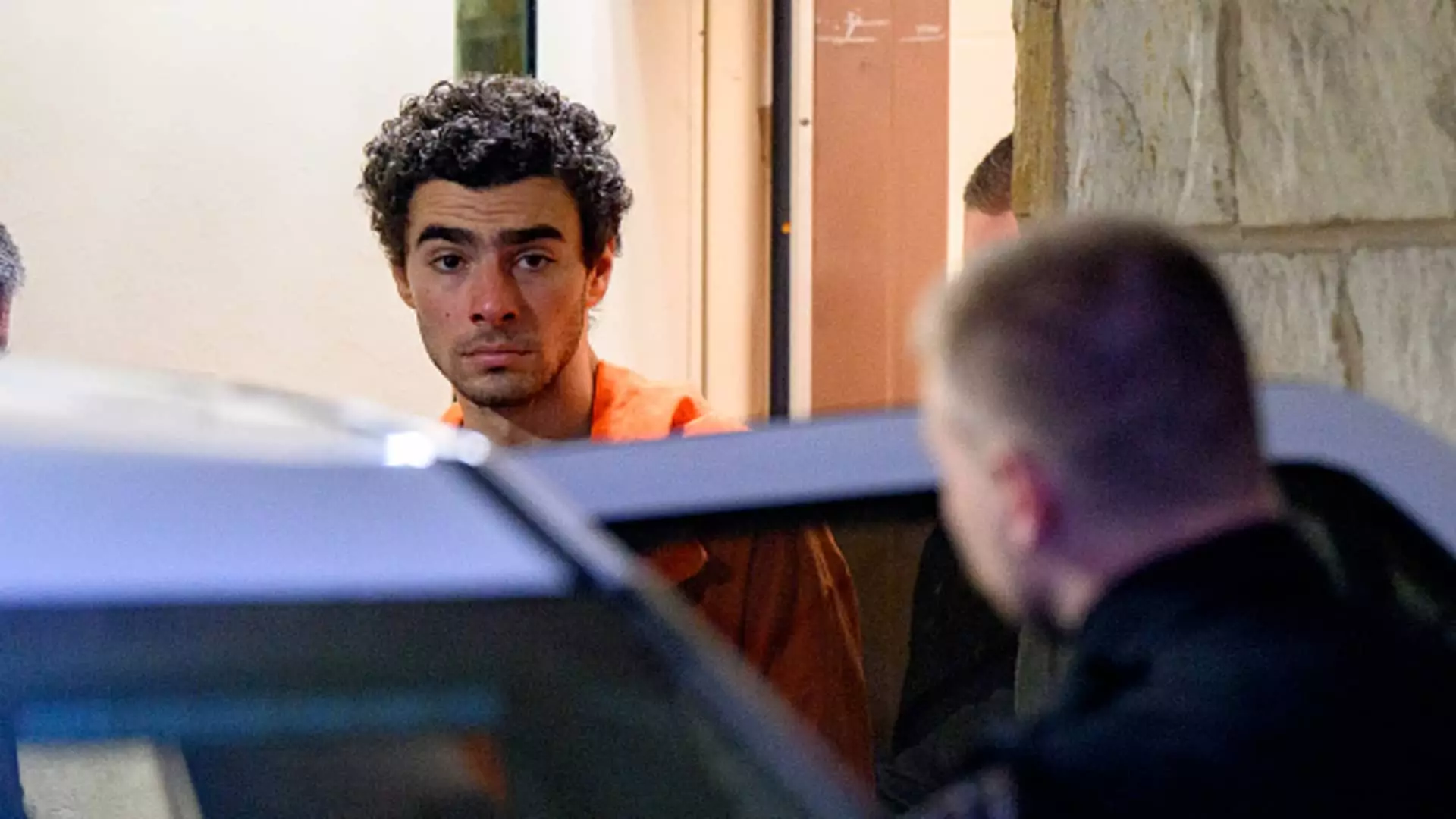The case surrounding the alleged assassination of United Healthcare CEO Brian Thompson has escalated significantly following revelations from federal prosecutors about potential charges against Luigi Mangione, the primary suspect. According to insiders privy to the developments shared with NBC News, federal authorities are deliberating over whether to file additional charges against Mangione, a 26-year-old man already implicated in a state-level murder case. If federal charges arise, the legal proceedings at the New York state level would take precedence, signaling an intricate judicial battle ahead.
Mangione was indicted on first-degree murder along with several other serious charges related to the premeditated killing of Thompson, who tragically lost his life on December 4. The violent act occurred on a bustling Manhattan sidewalk, where Thompson was reportedly ambushed and shot from behind—a tactical maneuver that suggests intent and planning. This crime is particularly alarming as Thompson’s role placed him at the helm of the largest private health insurance company in the United States, emphasizing its implications on the healthcare industry and public safety.
Authorities have indicated that the motivation for targeting Brian Thompson may stem from the vast influence and prominence of United Healthcare. The use of violence against a pivotal figure in American healthcare raises significant questions about the intersection between business rivalry and violent crime in contemporary society. The murder charge against Mangione additionally includes considerations of terrorism, a classification that adds weight to the seriousness of the accusations.
Under New York state law, the stipulation for a first-degree murder charge necessitates the existence of special circumstances, which may include killings intended to further terrorist objectives or actions for hire. This intricate legal framework means that prosecutors must carefully build their case to meet high evidentiary standards. Legal experts note that the decision to classify the event as terrorism could imply an agenda behind the attack—an attempt to intimidate or instill fear within the healthcare sector.
In the midst of these developments, Mangione’s legal representation is assertively preparing to challenge the state’s accusations. Attorney Karen Friedman Agnifilo vocally criticized what she described as “an already overcharged first-degree murder and state terrorism case.” Her statements indicate a strategic approach to contest both the nature of the charges and the foundational claims of wrongdoing. Citing constitutional concerns surrounding double jeopardy, she implies that the legal stakes could become even higher if federal charges are introduced without proper justification.
As the legal proceedings develop, the implications of this case are immense. Not only does it involve high-profile individuals, but it also raises concerns related to public safety and the legal ramifications of perceived professional disputes turning violent. The potential for life imprisonment without parole looms large over Mangione, which could serve as a deterrent to similar acts of violence in the future.
The murder of a prominent CEO in a major metropolitan setting brings to light the urgent need to address issues of violence in society, particularly in relation to corporate power dynamics. The death of Brian Thompson does not merely reflect a singular tragedy; it symbolizes broader anxieties and conflicts within the rapidly evolving healthcare landscape.
Furthermore, this case is poised to provoke public discourse on the inadequacies of current systems designed to protect individuals from targeted violence driven by competition or ideological extremism. As the courtroom proceedings commence, the society’s scrutiny will be keenly focused on not just the legal outcomes, but the possible regulatory changes and preventive measures that could be implemented in the aftermath of such an alarming occurrence.
The case against Luigi Mangione is just beginning to unfold and will undoubtedly reveal deeper societal issues and challenges. Interest in how federal and state prosecutors will collaborate, as well as how defense strategies develop, will remain high in the coming months as the legal system grapples with the implications of this violent crime.

Leave a Reply